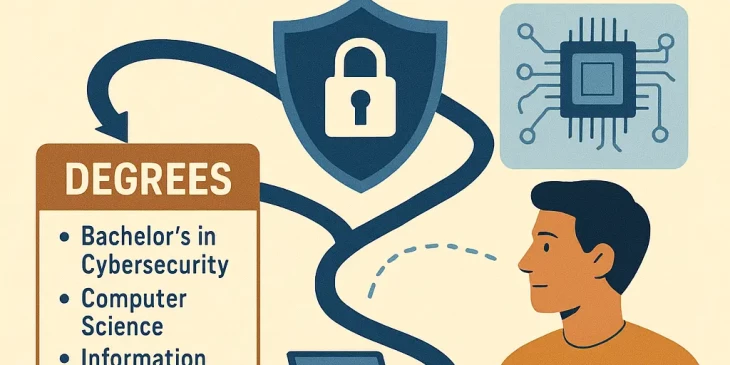Cybersecurity career pathways, degrees, certifications, skills Explore essential degrees, certifications, and skills for aspiring cybersecurity professionals navigating the digital landscape in 2025.
Navigating Cybersecurity Career Pathways in 2025
In today's increasingly digital landscape, cybersecurity has emerged as one of the most crucial fields for protecting sensitive information and maintaining trust in online systems. As cyber threats continue to evolve, the demand for skilled cybersecurity professionals is at an all-time high. This blog aims to guide aspiring professionals through the essential degrees, certifications, and skills needed to thrive in the cybersecurity realm.
Understanding the Importance of Cybersecurity
With the rise of digital technologies, businesses and organizations face numerous cyber threats, including data breaches, ransomware attacks, and identity theft. The importance of cybersecurity cannot be overstated, as it is vital for safeguarding personal information and ensuring the integrity of systems.
Essential Degrees for a Career in Cybersecurity
While there are various pathways into the cybersecurity field, obtaining a relevant degree can provide a solid foundation. Here are some degrees to consider:
- Bachelor's Degree in Cybersecurity: This degree covers essential topics such as network security, information assurance, and ethical hacking.
- Bachelor's Degree in Computer Science: A broader focus on computer systems and programming can also lead to a successful career in cybersecurity.
- Master's Degree in Information Security: For those seeking advanced knowledge and leadership roles, a master's degree can be beneficial.
Key Certifications to Enhance Your Resume
Certifications can significantly enhance your employability and validate your skills in the cybersecurity field. Some of the most respected certifications include:
- Certified Information Systems Security Professional (CISSP): This certification demonstrates your expertise in information security.
- Certified Ethical Hacker (CEH): CEH certifies your skills in penetration testing and ethical hacking.
- CompTIA Security+: A great entry-level certification that covers essential cybersecurity concepts.
Crucial Skills for Cybersecurity Professionals
In addition to formal education and certifications, aspiring cybersecurity professionals should cultivate a diverse skill set. Key skills include:
- Analytical Thinking: The ability to analyze complex security issues and devise effective solutions.
- Technical Proficiency: Familiarity with various operating systems, network configurations, and security tools.
- Communication Skills: The ability to convey technical information to non-technical stakeholders is critical.
Staying Updated in a Rapidly Evolving Field
The cybersecurity landscape is continuously changing, making ongoing education and training essential. Professionals should engage in continuous learning through online courses, webinars, and industry conferences.
Conclusion
Navigating the world of cybersecurity career pathways requires a combination of education, certification, and skill development. By understanding the essential degrees, acquiring relevant certifications, and honing critical skills, aspiring professionals can position themselves for success in this dynamic and rewarding field. As we progress through 2025, the opportunities within cybersecurity will only expand, making it an excellent time to embark on this career journey.



Leave a Comment
To post comment, please